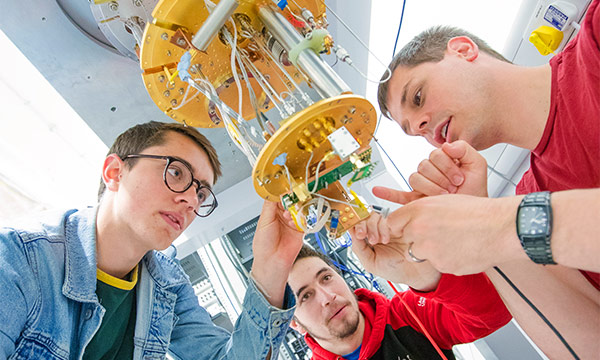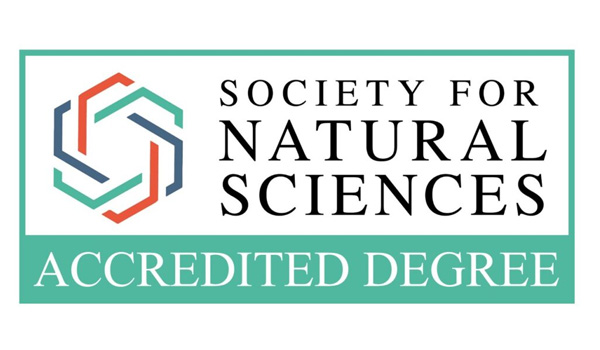Natural Sciences is a challenging degree that allows you to study across all of the scientific disciplines to an advanced level. Our pathways let you customise your Master's degree to suit your interests and career aspirations.
If you are interested in studying more than one scientific subject to an advanced level, our degree allows you to combine up to three different subjects throughout the programme. You can keep your interests open or choose to specialise as you progress. Either way, our Natural Sciences MSci degree is designed to challenge the brightest students who are highly motivated and prepared to apply themselves across multiple boundaries. You can choose pathways from ten subject areas that can be combined together to create a purpose built degree programme. The subject areas are:
- Biological Sciences
- Chemistry
- Computing
- Engineering
- Environmental and Earth Sciences
- Geography
- Mathematics
- Medical School
- Physics
- Psychology
Additionally, each pathway within these ten subject areas includes a wide selection of modules to choose from. This breadth of possibilities makes it difficult to summarise what the three year programme will look like, but the experience will be unique and tailored to your needs and goals.
In the first year, all students begin with three pathways. You must choose two science pathways, and a third that can either be another science topic or you can select from elsewhere across the University, including a range of humanities and social sciences. You will be taught by academic staff who are leaders in their field, gaining a comprehensive understanding of your chosen subjects. You will also develop important skills and technical knowledge specific to each discipline, as well as interdisciplinary skills, such as data handling, analysis and evaluation, plus laboratory, IT and specialist software skills.
At the end of the first year, you will have the opportunity to choose whether or not to continue with three subjects or to just focus on two sciences, to suit your goals and ambitions.
In second year, your study will begin to become more focused and modules will be more specialised. You will continue to develop your skills from first year and you will have the opportunity to utilise and practise the knowledge and experience you have gained so far. In addition, many of the modules will allow you to progress your project management, research and professional skills, as well as further enhancing your technical ability.
During the third year, you will delve deeper into the topics that interested you previously and much of what you explore will be guided by what you studied in the second year. This year, you will firmly cement your learning by applying your skills and experience, while developing new skills and technical knowledge.
In the fourth year, you will benefit from cutting-edge, research-led, advanced modules in your chosen subjects, delivered by lecturers that are experts in their field, and undertake a major research project. All of this will allow you to gain the relevant skills, knowledge and experience, to prepare you for a rich and rewarding career in research and development.
Assessment
We aim to provide you with the most effective and stimulating approaches to teaching, learning and assessment, to enable you to demonstrate your capabilities in a range of ways. Assessment varies across disciplines and from module to module, but typical assignments include: laboratory reports, essays, literature reviews, short tests, short and sharply focused critical reports, poster sessions and oral presentations, as well as formal examinations.
Community
Fitting with the dynamic and diverse nature of our Natural Sciences programme, you will have the opportunity to engage and build meaningful relationships with students and staff from multiple scientific disciplines. You will be welcomed and integrated into departments as anyone on a single-track programme would.
You will also be part of a Natural Sciences community, which fosters a highly supportive and productive learning environment. You will benefit from an excellent student-to-staff ratio, work with and be supported by approachable and engaging staff, and be recognised as an individual person with individual needs.
Additionally, you will have access to a wide range of state-of-the-art facilities that provide space for socialising with your peers, as well as help you excel in your studies.











